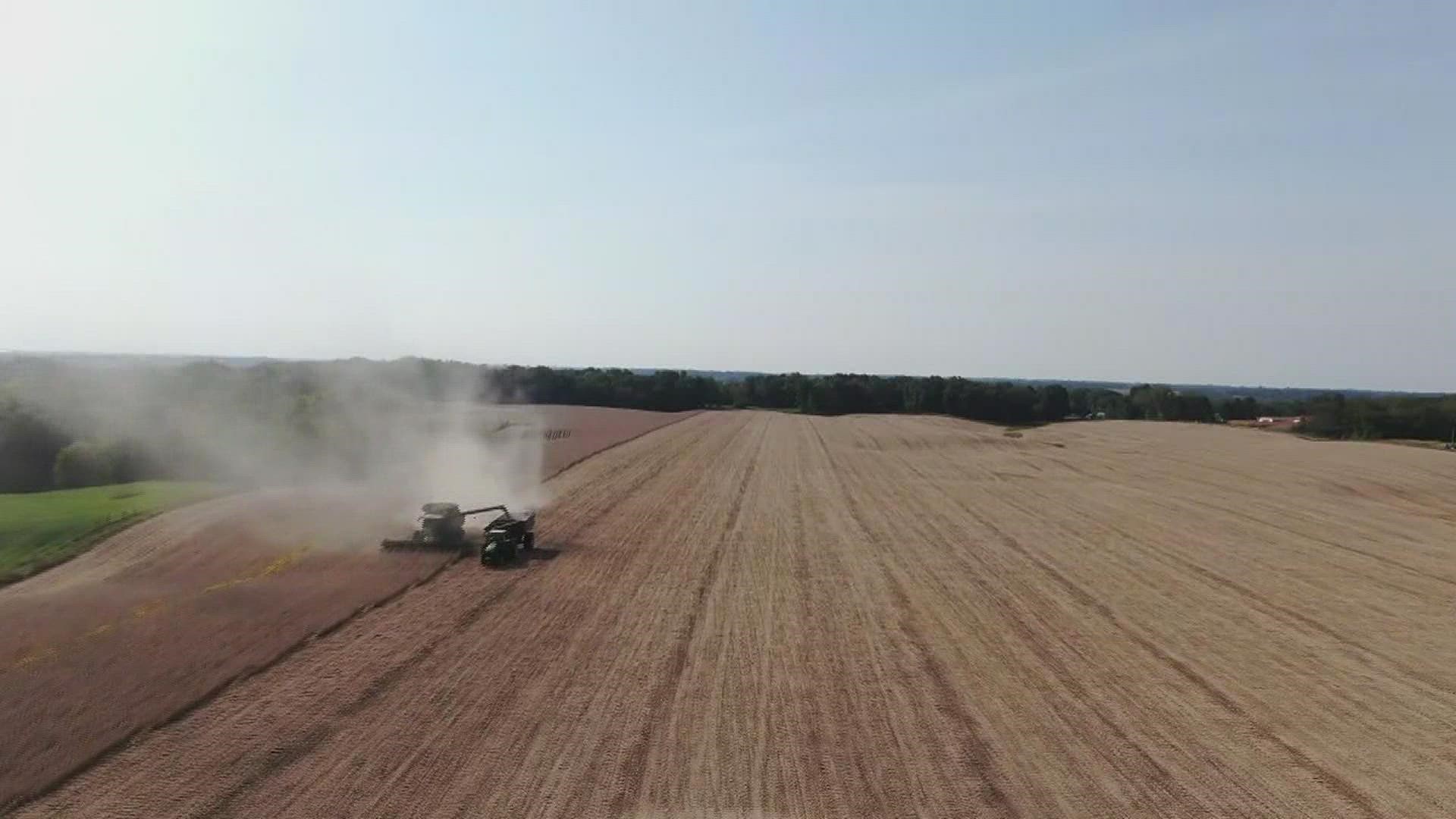ILLINOIS CITY, Ill. — It's not easy for Shea Bieri to remember an earlier soybean harvest. This year, the Rock Island County farmer got out in the fields, alongside his dog June, by the middle of September.
He says despite pockets of unfavorable weather this summer, bean yields are looking slightly above average.
Bieri attributes most of that success to technology advancements in seeds.
"Beans have been yielding way better than they have - exponentially - from when I was a young boy. The yields still fall, but they're still way better than they were back 10-20 years ago for sure," he said.
On Friday morning, Bieri and June were out in the combine, finishing up 70 acres of beans. The week's unseasonably-warm temperatures provided the perfect, dry scenario for combining.
"Now it's just a race to get everything out before she gets dried too far," Bieri said. "Bean yields have been above average. They've been pretty good this year."
He isn't the only farmer feeling the boost. The U.S. Department of Agriculture reports the average soybean harvest in Illinois this year is 64 bushels per acre. It's a number that many farmers in the previous generation considered an 'outstanding' crop.
"The industry as a whole has changed a tremendous amount. I was talking about this field and how it's going to yield 68 to 70 bushels to the acre, and my uncles, my grandparents, they're just astonished by that. They're thinking 20s and 30s and 40s," said Bradley Mason, a Pioneer Field Agronomist.
Mason attributes this year's harvest to advancements in seed technology, especially as farmers across the region battled a variety of weather phenomenon over the summer. As an agronomist, he's seen all types of severe weather through his area coverage, from Macomb up to the Quad Cities.
"Across the board, I've had a drought, I've had a flood, I've had wind events across my geography," he said. "There is a huge difference in climates just within my coverage. The second you plant a seed it goes through a lot of different things."
It's only the beginning of what farmers have been dealing with the past few years. After 2019's floods, and 2020's derecho, this summer's weather almost seemed tame, laughed Mason.
Over the years, he said seeds have been modified to withstand rot, standing water, extreme heat and more. Now, farmers are getting more yield out of the same-sized fields than five to ten years ago.
All the more important, as he says it appears severe weather patterns are here to stay, both in intensity, and in frequency.
"You hopefully only plant a crop one. The last couple of years we've had to plan a couple of times. It is unique to have this many different environments across the geography but unfortunately it's becoming a little bit of the normal," he said. "We hope that it kind of changes but we can't really control it, so we have to plan for it a little bit."
"It's all kind of a challenge every year," agreed Bieri. "Every year something new."

